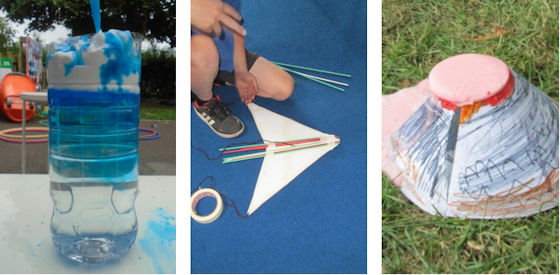Science
At Stratford-sub-Castle Primary School, we recognise the importance of science in many aspects of everyday life. We want to promote a love of science for our pupils through:
- developing their knowledge and understanding of the world around them
- developing their respect for the world around them
- developing their curiosity and questioning around new concepts
- developing their confidence to question their own prior knowledge and explore new answers
- developing their ability to work together and value the ideas and opinions of others
- developing their communication skills
- developing their social and emotional wellbeing
The National Curriculum provides the framework for the development and progression of science knowledge and skills as the pupils move through Stratford-sub-Castle Primary School. At every stage, pupils will be encouraged to recall and build on their existing knowledge and scientific vocabulary in conjunction with applying and developing their skills in enquiry, observation, classifying and investigating. Pupils at Stratford-sub-Castle Primary School will be encouraged and supported to follow their own line of questioning to build investigations, gather and analyse data and showcase their findings using a range of methods in their science learning. Whilst at Stratford-sub-Castle Primary School, pupils will develop an awareness of how science shapes their everyday lives and how it can shape them as individuals both now, and in the future. Furthermore, we endeavour to ensure that the science curriculum we provide, will equip our pupils with the knowledge, skills, confidence and inquisitiveness to further develop their love for science as they continue into the next stage of their education and beyond.
The concepts for Science at Stratford-sub-Castle Primary School are:
- Biology – Plant, Animals (including humans), Evolution and Inheritance
- Physics – Everyday Materials, Rocks, Earth and Space, Light, Forces and Magnets, Electricity, Sound
- Chemistry – States of Matter, Seasonal Changes
- Scientific Enquiry – planning and predicting, investigating and observing, evaluating and concluding

Implementation:
Within the classroom, teachers will create a positive attitude to science; encouraging questions, celebrating curiosity to find the answers and reinforcing high expectations with regards to the belief that every child is capable of achieving the highest standards in their science learning.
Science will be taught in a fortnight block every half term to allow time for children to delve into their science learning with a greater focus and provide time to explore, plan and investigate within the focused scientific area.
All teachers will:
- revisit previous science learning on a regular basis to enable the retention of knowledge and vocabulary which will subsequently allow children to confidently build on this as they progress through the school. This may occur in any subject where the learning is relevant.
- plan to build on children’s existing knowledge and skills through the provision of engaging lessons with:
- direct teaching of new knowledge and vocabulary
- carefully constructed teacher led tasks and activities
- questioning to challenge and promote independent enquiry
- time to investigate
- opportunities to solve problems using their prior and newly learnt skills and knowledge
- use of high quality resources to support learning
- use of the local environment to make the learning relevant and to promote positive learning attitudes associated with being outdoors.
Teachers will encourage and support children to:
- be curious and ask questions
- plan and carry out their own investigations
- select appropriate equipment and be able to use it safely
- work together and develop essential teamwork skills
- see how science fits into their everyday life and how it may shape their future
- interpret their findings and communicate these clearly in a variety of ways
- regularly assess children’s knowledge and skills through carefully planned activities and questioning. Identification of any gaps in learning will be targeted and addressed.
Impact:
- Pupil Voice: Pupil engage and enjoy their science learning. Pupil’s science learning inspire a curiosity and fascination about the world and its people.
- Evidence in Knowledge: Pupils have a good knowledge of the key concepts in science. Pupils can use correct vocabulary to share their scientific knowledge.
- Evidence in Skills: Pupils are able to plan fair tests and explain why they are fair. Pupils are able to take measurements and show their results in tables and graphs. Pupils are able to draw simple conclusions. Pupils are less familiar at presenting their findings in oral presentations.
- Breadth and Depth: Teachers plan a range of opportunities, including practical investigations, for pupils to learn science and link to other areas of the curriculum (i.e. use of statistics).
- Science
Science
Science Key Concepts 2023
SCIENCE CURRICULUM MAP v 5.0




